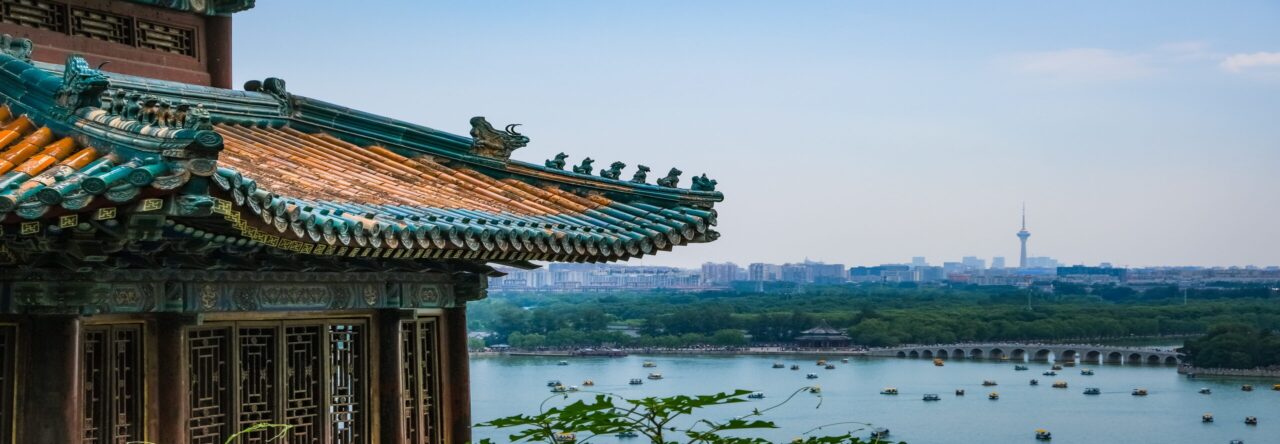
At first go, comparing Western and Chinese modes of expansion feels to be antipatriotic. The United States has historically prided itself on the righteous campaign of democracy being the leading force of its international reach. On the other hand, Chinese expansion is laden with tones of debt-trap diplomacy and power grabs by the Chinese Communist Party (CCP). These modes of power seem to be in direct opposition to each other. But ultimately, both powers are expanding into territories not deemed to be their own. How do these global powers differ in their approaches?
Laleh Khalili, author of “Growing Pains”, tells us that the US is no stranger to extending its hand of construction into countries it deems strategically advantageous to its military. In 20th century Libya, Turkey, Iran, Saudi Arabia, and Pakistan, communication and transportation infrastructure was built by the US Army Corps of Engineers to suit the needs of military transport and strategy, never really seeming to take into account the needs of a host country (Khalili 2021).
Meanwhile, socialist China was providing monetary aid to its southern neighbors; funding infrastructure was a form of solidarity with countries previously burned by colonial powers. Circumstances have certainly changed since then. Presently, China is the world’s second-largest economy, boasting a nominal GDP of $17,734.1 billion. Its scope of power has vastly widened, and so have the accusations of neocolonialism. Is this justified?
China is known for its public policy claim of non-interference established at the 1955 Bandung Peace Conference by Premier Zhou Enlai. This pledge to avoid direct interference in a foreign entity’s politics has been noted as China’s move away from “hard power” to favor a softer approach deemed “strategic” economic tooling by Chinese Foreign Minister, Wang Yi (Sidaway, Woon 2017).
How, therefore, can we view the Belt-Road Initiative with this context in mind? Do accusations of neocolonialism hold up when one considers the domestic and international economic value that such an expansive project would provide? Is this mode of expansion one of socialist internationalism, or is it an example of global capitalism in which China is just another participant trying to get ahead?
In my opinion, it hardly seems fair to ascribe such an exaggerated label to Chinese infrastructural expansion. When we take a look at the practical history of Chinese development in foreign countries, Chinese interest seems to lie solely in economic discourse. I believe this is best exemplified in China’s shift away from noninvolvement with increased volatility surrounding its business interests in Africa. Historically uninterested in the local politics of the continent, Chinese involvement has begun to increase through diplomatic (“such as in Sudan, where the Chinese… played an active role in persuading Khartoum to accept the Africa Union/United
Nations hybrid peacekeeping force”) and militaristic (a sharp increase in arms sales) means.
Given these instances, I am led to believe that China is more interested in protecting its economic assets than using infrastructure to create a global political empire. Of course, there are other facets of China’s political structure that arouse hostility. Its authoritarian structure, mass enlistment of its citizens to garner the world’s largest standing army, and sovereignty violations are cause to keep an eye on China. However, the BRI and other Chinese economic investments do not seem to carry the same swing as China’s more overt power plays. Where central government plays a large role in the aforementioned policies, the BRI and other foreign infrastructure investments are much more localised. Such external forces would certainly hamper any plans China might have for political overthrow. Perhaps the American fear surrounding China’s external investments have more to do with a growing anxiety owing to China’s rapid exponential growth and a decrease in foreign interest surrounding American investment.



Tim Oakes
This is becoming such a great-looking blog! And it’s well-written and includes lots of great material. Nice work!
Great to see the link on debt-trap diplomacy. This is complicated issue that we’ll explore in greater detail when we get to the finance section of the course. Might be interesting to go back to this link later and see how much of it you agree with.
“China is more interested in protecting its economic assets than using infrastructure to create a global political empire” – I think this is a pretty accurate assessment.